Finally—finally—we have reached the Confluence of the Green and Colorado rivers. It is both thrilling and horrifying. This afternoon, we pulled up on shore near the spot where, almost 141 years to the day, the Powell Expedition set up camp for four days “for the purpose of determining the latitude and longitude, and the altitude of the walls.” During their stay at this camp, Powell’s men dried and sifted their food supply, which was already running low, and repaired their boats and equipment.
On July 19, 1869, Major Powell and Georbge Bradley climbed up a side canyon below the Confluence into the Needles country to the east, and described their view: “And what a world of grandeur is spread before us! Wherever we look there is but a wilderness of rocks; deep gorges, where the rivers are lost below cliffs and towers and pinnacles; and ten thousand strangely carved forms in every direction; and beyond them, mountains blending with the clouds.”
We also took time out to climb the canyon as high as we could for those same views. Which were, all this time later, every bit as awe-inspiring.
High up in the canyon, overlooking the rivers, each of us found a little spot of solitude to contemplate his own thoughts about what lay ahead. I leaned back against a rock and thought of Powell and his motley crew who, for eight days, battled the unknown rapids in Cataract Canyon. They had to line or portage most of the rapids because their wooden boats could not survive heavy water and they were afraid of losing more of their valuable food supply. Indeed, Powell’s boat, the Emma Dean, was swamped on the first day below the Confluence. Portaging the numerous rapids was painstaking hard work; they had to stop several times to make new oars from drift wood and to repair the damaged boats. The 52 closely spaced rapids that they encountered, many of them severe, are what prompted Powell to name this “Cataract Canyon.”
Which is where we are headed tomorrow morning.

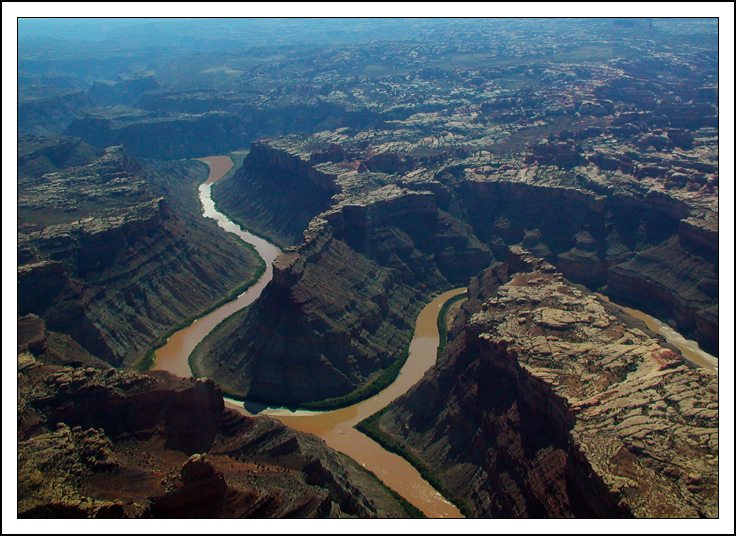
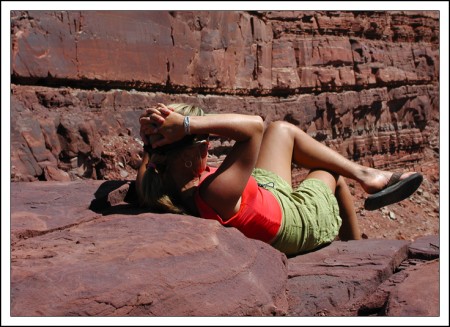
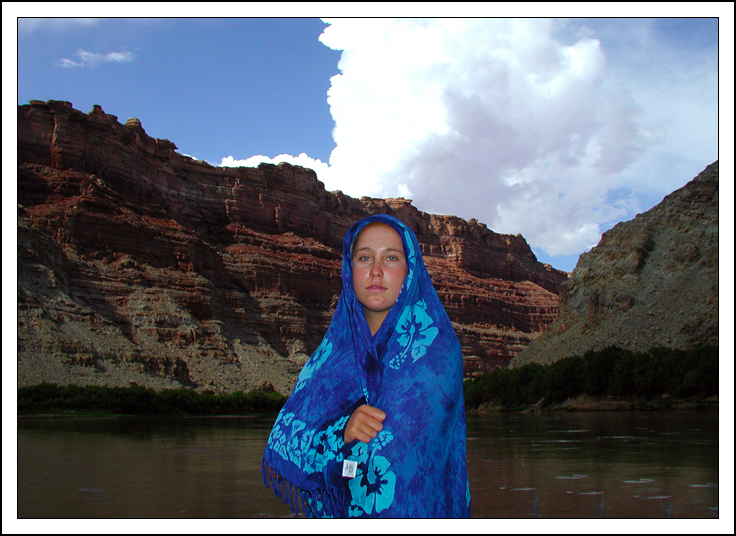
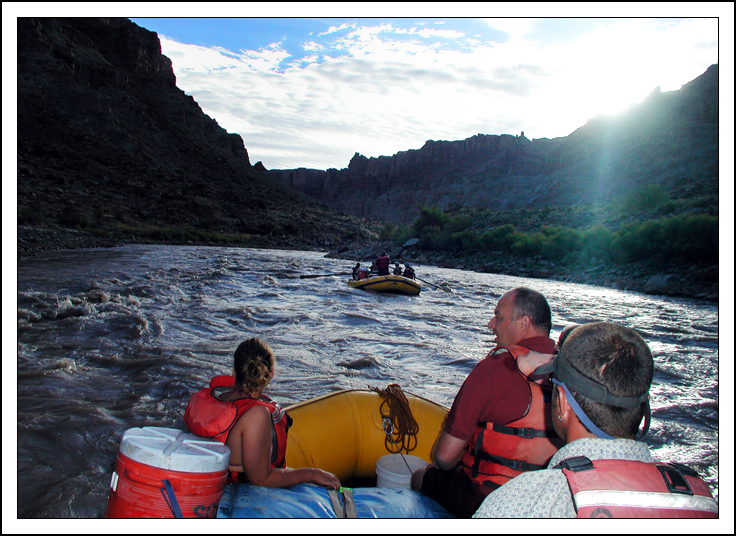
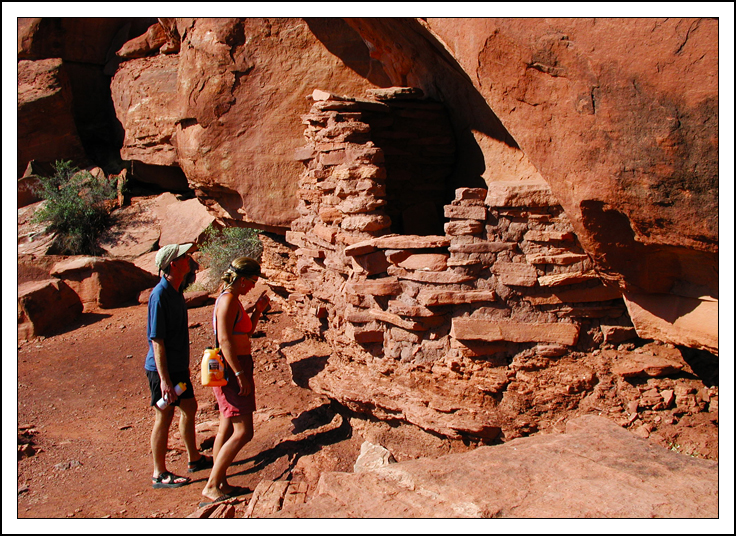
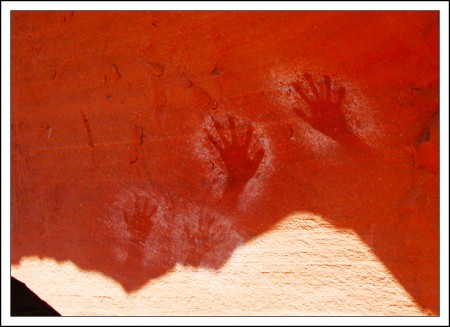
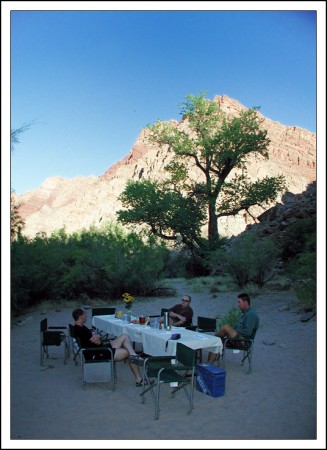
Recent Comments